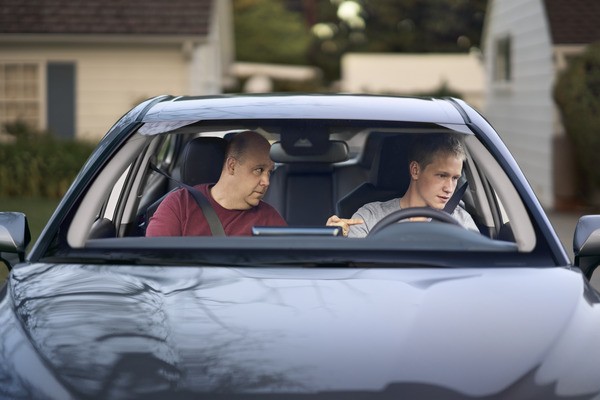Throughout your years of driving, various sounds may emanate from different parts of your vehicle. While some noises are normal, others may signal a concern. One common query revolves around rattling, especially when coming to a stop.
To address the question, “why does my car make a rattling noise when stopped in drive?” It is advisable to consult a qualified automotive technician. You can schedule an appointment online for a thorough examination.
However, for those inclined to address issues independently, here are a few potential causes of rattling sounds in your car.
7 Top Causes
Ever wonder why your car makes a rattling noise when you stop? Let’s break it down in simple terms. We’ll explore the common reasons behind that pesky sound, from loose parts to more serious issues.
Knowing what might be causing it helps you keep your car running smoothly. So, join us as we figure out why your car rattles when you hit the brakes and how you can tackle the problem for a quieter and worry-free ride.
1. Faulty Catalytic Converter
The catalytic converter is really important for a car’s exhaust system. It does a big job in making sure the car doesn’t release too much pollution by changing harmful stuff in the exhaust into less harmful things.

But over time, the inside of the catalytic converter can wear out and fall apart. Tiny pieces end up inside it, making a rattling noise when the car stops.
2. Damaged Brackets
If you hear things moving or making noise in your car, loose or broken brackets might be the reason. Brackets are like supports that hold heavy parts in place. They connect these parts to your vehicle or other systems. While most brackets last a long time, they can wear out.
When they do, you might notice parts moving and making clunking sounds. The good news is that fixing broken brackets is usually not too complicated and can be done quite easily.
3. Bad Bearing
If your car makes noise when idling in drive, it might be because of a faulty throw-out bearing or pilot bearing. In a manual transmission, the throw-out bearing can produce a rattling sound if you keep your foot on the clutch more than necessary.
If the car is idling with the transmission in gear and your foot on the clutch, it can lead to the bearing failing eventually. Similarly, keeping your foot on the clutch continuously can cause wear on the throw-out bearing over time.
4. Loose Heat Shield
Heat shields are like protective layers for your car. They’re made to stop things from getting too hot and potentially harming the engine.

These shields also play a role in stopping the car from starting if the catalytic converter gets too hot. Occasionally, the heat shield on the exhaust system might become loose, making a rattling sound when the car is stopped.
5. Failed Water Pump
Your car’s water pump is crucial for keeping the engine at the right temperature, preventing it from getting too hot. If the water pump stops working properly, it can create a grinding noise.
This grinding sound happens when the bearings inside the water pump rub against each other, especially when the drive belt puts pressure on them.
If you think your water pump is having issues, it’s a good idea to replace it. Talk to a mechanic to avoid any more damage to your vehicle.
6. Valve Train
If your car’s engine is making rattling noises while idling or accelerating, inspect the valve train. The valve train is responsible for opening and closing valves to allow fuel intake through the intake valve and release exhaust through the exhaust valve.
Rattling noises in the valve train can be caused by a worn rocker arm. In such cases, the vehicle may not trigger the check engine light but can produce rattling sounds when in park or during acceleration. To identify the problem, examine the condition of the engine oil.
7. Low Oil Pressure
Engine oil plays a crucial role in lubricating and safeguarding all the moving parts within the engine. As the oil circulates through various openings, its pressure ensures that every part of the car’s engine receives the necessary lubrication.

If you hear ticking noises from your engine when you bring your vehicle to a stop, it could be a sign of low oil pressure. Low oil pressure is often a result of inadequate maintenance rather than a malfunctioning pump.
Neglecting low oil pressure can lead to corrosion, wear, and deterioration of car parts due to insufficient lubrication. It’s important to address this issue promptly to prevent further damage.
How To Fix?
If your car is producing a rattling noise when idling in drive, it’s crucial to systematically identify and address the issue to prevent potential damage. Start by listening closely to pinpoint the source of the noise. Common culprits include engine-related components, the exhaust system, or loose parts in the engine bay.
Firstly, inspect the engine mounts for signs of wear or damage. Worn-out engine mounts can lead to vibrations and rattling sounds. If any issues are detected, replacing the damaged mounts can often resolve the problem. Next, scrutinize the heat shields around the exhaust system. Loose or damaged heat shields can produce rattling noises, and securing or replacing them may eliminate the issue.
A thorough examination of the exhaust system is also essential. Check for loose brackets, pipes, or mufflers, and tighten or repair them as needed. Additionally, inspect the drive belt for signs of wear or looseness. A worn or improperly tensioned drive belt can contribute to rattling noises, and addressing this issue may involve adjusting or replacing the belt.
If these DIY checks don’t resolve the problem, it’s advisable to consult a professional mechanic. They can conduct a more in-depth inspection, utilize specialized tools, and accurately diagnose and fix the issue causing the rattling noise during idling in drive. Prompt attention to such concerns ensures the longevity and optimal performance of your vehicle.
FAQs
Q: Why is my car making a rattling noise when stopped in drive?
A: Several factors could contribute to a rattling noise in your car when stopped in drive. Common causes include issues with the engine mounts, exhaust system, heat shields, or loose components. It’s recommended to identify the source of the noise through careful inspection or consult a mechanic for a thorough diagnosis.
Q: Can low oil levels cause a rattling noise in my car when idling in drive?
A: Yes, low oil levels or degraded engine oil can lead to increased friction and wear on engine components, resulting in rattling noises. Regularly check and maintain the proper oil levels to ensure optimal engine lubrication and reduce the risk of rattling.
Q: How do I determine if the rattling noise is coming from the exhaust system?
A: Inspect the exhaust system for loose or damaged components, such as heat shields, brackets, or mufflers. If any parts are visibly loose or worn, securing or replacing them can often resolve the rattling noise. Professional assistance may be necessary for a more comprehensive examination.
Q: Is rattling noise always a serious issue?
A: While some rattling noises may be caused by minor issues like loose components, it’s essential to address them promptly. Ignoring rattling sounds could lead to more severe problems, potentially causing damage to crucial vehicle parts. If in doubt, consult with a qualified mechanic to diagnose and address the issue.
Final Thought
As your vehicle operates with various moving parts, it’s natural to experience a range of sounds and motions while driving. From the moment you start driving until you come to a stop, distinguishing between normal and unusual car noises becomes important.
Rattling sounds that become noticeable when you bring your car to a stop can be a significant indicator of potential serious issues with your vehicle. These rattles, knicks, and other unusual sounds can serve as early warnings, helping you identify faults within your car’s system.
Addressing these issues promptly allows you to resolve problems and replace any necessary parts, ensuring the continued smooth operation of your vehicle. Regular attention to these sounds can contribute to early detection and maintenance, preventing more extensive damage.

